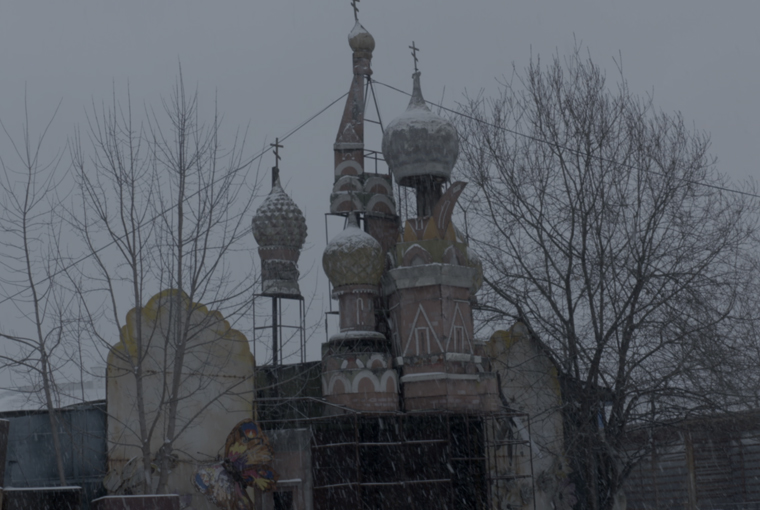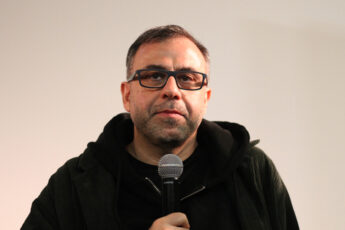
As the situation of migrants remains precarious and immobile as ever, with the boundaries literally being pushed ever further outwards, middleclass fantasies about summer vacations were not the only thing dispelled by current restrictions on travel and mobility. Traveling for work has become difficult, with most companies being forced to rely on digital communication and home office – two buzzwords in today’s discourse on the future of work with its connotations of constant connectivity and intermingling of our personal and professional lives. For the film industry, the global cocktail party of the rich and beautiful, this has caused a major disruption not only in terms of event planning, but also in terms of keeping alive a creative industry that is built on revolving doors structures. Though the constraints on travel and large-scale meetings would suggest that the film industry would react by resorting to localism, one could argue that there is also an opposite tendency of defying the odds and setting up creative channels during the pandemic.
In Russia, such efforts appear to be especially widespread, with many events and organizations reaching out to new Western partners in the past few weeks. For years, cultural politics in Russia are increasingly being nationalized, with government agencies and lawmakers expecting an ever greater focus on celebrating and idealizing the country’s national identity. Because of this state power, the West does not just play the role of an idealized Other for agents interested in alternative narratives to those dominating official discourse (although that may also be true in some cases). The West also appears to open up the possibility of a sort of collective escapism, whose potential is seen in contributing towards a new and original, rather than reproducing an existing and foreign, creative and political culture.
***
We, too, have set up a new partnership in Russia during the pandemic, as we bring you coverage of the independently run Moscow International Experimental Film Festival. In late August, we already published reviews of Maxim Pechersky’s The Year of the White Moon about intergenerational divides, Ismail Safarali’s post-colonial meditation I Still Must Watch You Turn To Stone, Alexandra Karelina’s Last Words, which raises questions concerning our relation to object, and a double review of Anna Tsyrlina’s All Other Things Equal and Olya Korsun’s Blue Rose, both of which examine our relation to the past by playing with nostalgia. Our September issue also features an interview with festival curator and co-founder Vladimir Nadein, who shares the story behind the event’s creation and discusses the aesthetics and politics of the festival with us.
Our September issue also features a review of Croatian collage-film Once Upon a Youth about Zagreb’s underground scene in the late 1990s and early 2000s, and an interview with its director Ivan Ramljak. Both pieces were conceived as part of our coverage of the 2020 Dokufest in Prizren. We are also bringing you an interview with Georgian-Russian filmmaker Dmitry Mamuliya, who speaks about the need for a new visual language and the usage of time in his films. Finally, we are publishing an interview with goEast’s festival director Heleen Gerritsen about the festival’s Symposium on the fate of film heritage 1985-1999, her take on 90s cinema, and what has and might still change during the restrictions and going forward.
We hope you enjoy our reads.
Konstanty Kuzma & Moritz Pfeifer
Editors




Leave a Comment